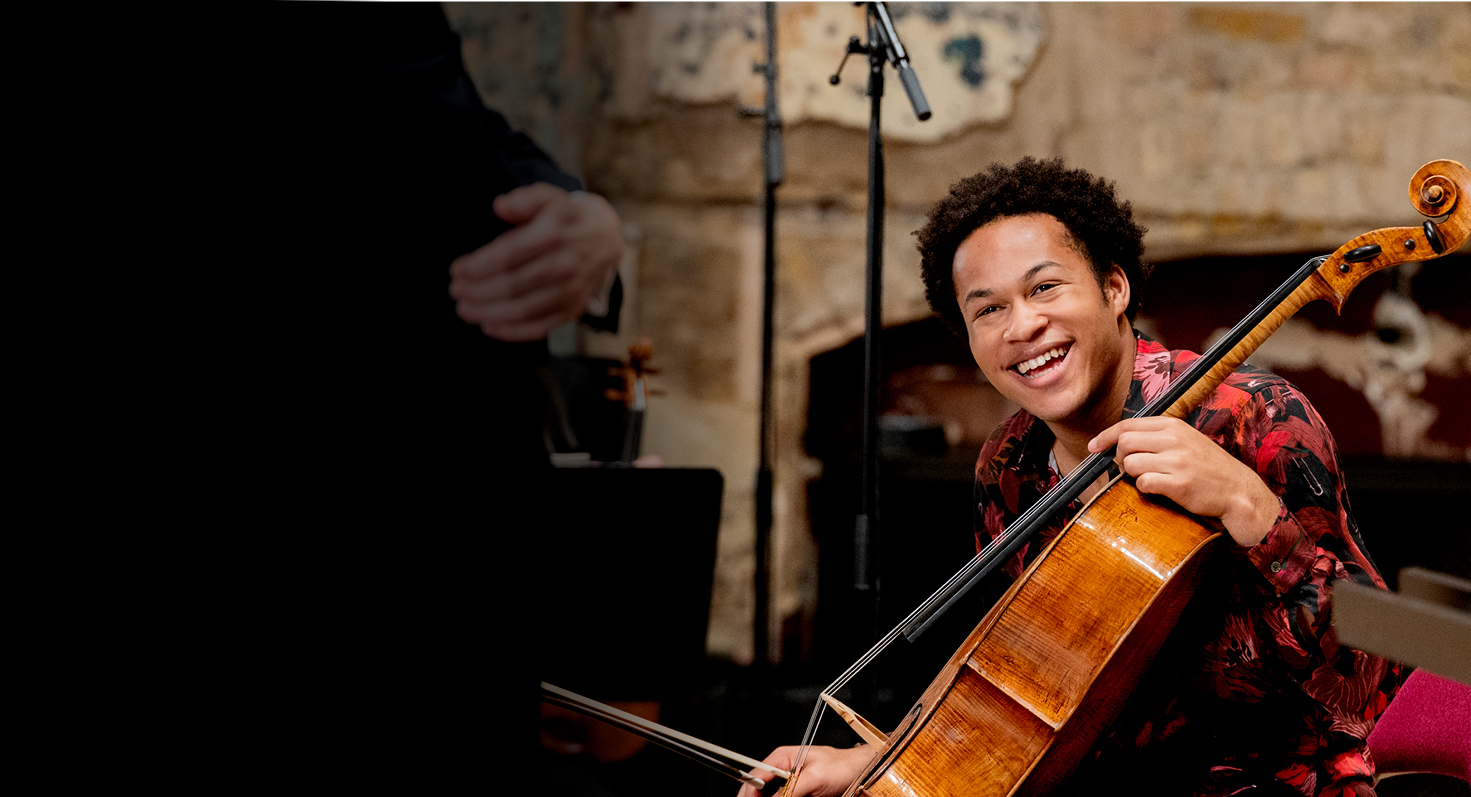To accommodate all that length, the bore doubles back twice on itself like a paper clip in contrast to the bassoon’s hairpin shape. The reeds, too, are thicker and heavier, and the fingering is different. The contrabassoon’s lowest notes are the lowest of the orchestra, and the instrument’s deep profound buzz was thought suitable only for reinforcement of bass lines until modern composers were able to find delight in the contrabassoon’s strangeness. This is another of the instruments Beethoven introduced into symphonic repertory with his Fifth Symphony.
Contrabassoon
The contrabassoon, or double bassoon, is an ungainly double-long bassoon playing an octave lower, which is very long and low indeed.

The Principal Contrabassoon Chair is endowed by David and Penny Stern.
Endowment opportunities at the Philharmonia offer supporters unique access and insights to our players. Find out more here:
About

Frequency Range
29-220 Hz
Tube Length
550 cm
Did you know?
Contrabassoon-type instruments have been known since the 17th century, however they were little used in orchestras until the late 19th century when Wilhelm Heckel developed the type in use today.
More like this
Join us on Instagram
Keep up to date about online concerts, behind the scenes content and much more

Keep up to date
Sign up for email updates and be the first to receive stories, films and concert announcements

Support the Philharmonia
Enjoyed this content? We need your help to keep these resources free

